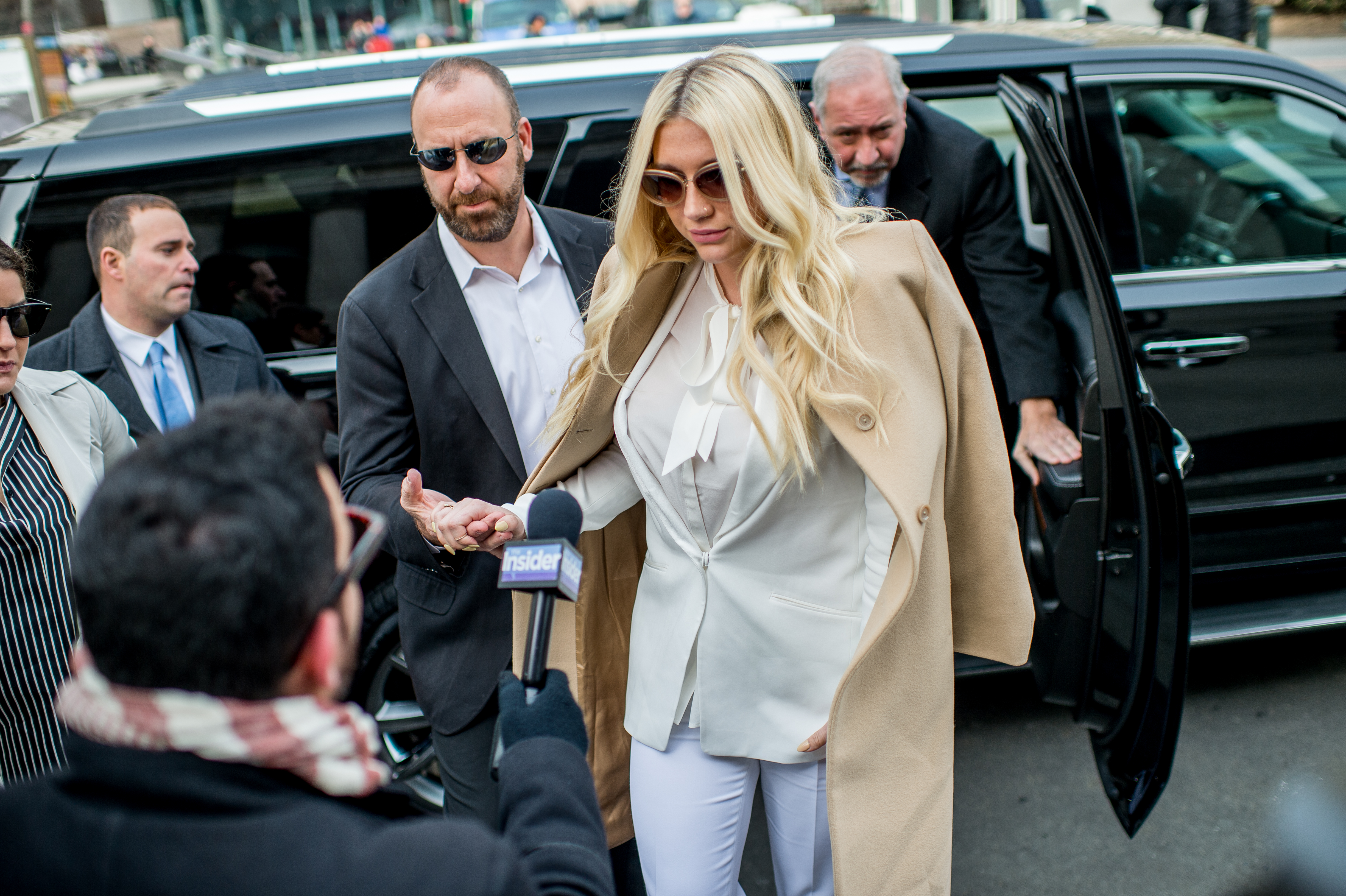Pink once tapped into previously unexplored territory on 2001’s wonderfully self-deprecating “Don’t Let Me Get Me,” when the gruff chart mega-hitter sang about dating her teachers and not being as pretty as “damn Britney Spears.” This was all relatable and good, but something was nagging about it; for lack of a less clichéd term regarding female artists, it was “confessional,” all about dispensing with the façade that pop stars operate at a more invincible level of self-esteem than the rest of us. You could call “Don’t Let Me Get Me” the blueprint for Kesha Rose Sebert, who wrote a song about seducing a teacher and also one for damn Britney Spears. But more importantly, her icebreaker to the world was that she brushes her teeth with a bottle of Jack.
In the eight years since Kesha became a household name, she’s proudly flounced societal convention every chance she’s gotten: proclaiming her preference for fat men, drinking her own piss on MTV, and being a woman who sings about not just sex but the act of being horny without some kind of filter or excuse. Her songs are often about drinking without consequence and emblazoned with titles like “Sleazy,” “Hungover,” and “Take It Off.” She’s the poster girl for a misspelled “No Regerts” tattoo, which is to say she could be viewed as the archetypal woman who isn’t believed when she says she was raped, the plastered co-ed at the frat party.
The sloshed Kesha persona boldly caricatures at least half of the women who get accused of “asking for it,” the bogeyman that negligent schools think is out there and scheming to ambush “good kids” like Owen Labrie or the Vanderbilt football players. There is a pervasive notion deeply ingrained in much of conventional society that a woman who makes such a show of her brashness is inviting some kind of lesson. So when Kesha brags seductively that “We do what you don’t” on “Blow,” it’s not hard to get a chill imagining that co-ed being harassed or worse, by an abuser trying to hang her by her own words: “I thought you did everything?”
It’s not just toxic YouTube commenters who couldn’t refrain from voicing their strong objections to Kesha’s persona. A respectable ‘B’ rating for her 2010 EP Cannibal in AV Club nonetheless came with the disclaimer that she’s a “failure of a human being,” a phrase usually reserved less for fellow on-record misfits like Guns N’ Roses than a tone-deaf, real-life creep like Chris Brown. (It’s worth noting that Kesha defends her music’s objectification of men as a corrective, fight-fire-with-fire measure.) An aside in Pitchfork’s review of Nicki Minaj’s Pink Friday called Kesha “irredeemably awful.” One early critical analysis on Slate that seemed to “get” her was nonetheless branded with the headline “Make It $top,” whether the author penned it or not.
Hyperbole no doubt comes with a job in music media, and as a male author who writes about female artists, I fall prey to the same grandiloquent rage when it comes to discussing, say, Meghan Trainor. But there is no doubt that a learned gender bias informs these grudges, that we have it on the books that Lana Del Rey’s career risked derailment by cruel reviews more than, say, Charlie Puth. Or, that Kesha’s inebriated fantasies get our goats while Future is praised handsomely for how he artistically exploits his dangerous lifestyle. Or, for that matter, that Kesha is considered a “failure of a human being” for a dated gender-roles lyric like “I just can’t date a dude with a vag” while Future’s “Pussy Overrated” has been memory-holed beneath a pile of well-regarded mixtapes. Or while the Weeknd goes to No. 1 with “I’m just trying to get you out the friend zone,” implying a negotiation with a woman who’s already told him her boundaries.
Silly or unfair as it may seem to place these pop-cultural developments along the same spectrum, there’s no denying the reality that 1) Kesha’s longtime producer Lukasz “Dr. Luke” Gottwald is battling allegations that he raped her by using the defense that She Is a Bad Person, that she’d stoop low enough to crying rape in order to gain contractual leverage, and 2) so far, he is emerging victorious in our legal system. The presiding Justice Shirley Werner Kornreich denied Kesha’s request for a preliminary injunction — which would merely suspend her extraordinarily controlling contract temporarily while her serious allegations are simply investigated — because they are believed to have so little merit. In nearly any other industry, an HR department would suspend Luke while looking into such charges. In commercial court with corporate stakes this high, it’s viewed as far more damaging to “decimate a contract that was heavily negotiated and typical for the industry” than to do the legal equivalent of hitting the pause button just to see what can be done to make a woman (even one who’s a multimillionaire and would be considered very powerful but for this very contract) feel safe.
On Monday, Gottwald denied any wrongdoing on Twitter and praised his “feminist mom who raised him right.” In trying to clear his name though, after already winning the court’s favor, he’s inherently trying to convince the public that Kesha is lying. There isn’t some kind of misunderstanding here where both sides can be right. He is hoping that people will trust him, the professional who once said in a Billboard cover story, “Sometimes you have to do things in people’s best interests and they don’t even know it, and maybe they’ll figure it out later and thank you, and maybe they won’t,” over her, the Auto-Tuned pee-drinker who does shots off the hood of her car.
Kornreich’s decision finally brought Kesha what one could ironically call the least polarizing attention of her career, as you’ve probably seen more than one Facebook friend make a comment along the lines of how they used to hate her, but now stand with her during this painful controversy. But with her allegations public since October 2014, it’s not outrageous to suggest that the newfound support of icons like Adele and Taylor Swift has been a huge turning point in the public supporting Kesha in her battle. That is, women who fit more neatly into the confines of “respectability” than Sebert herself.





